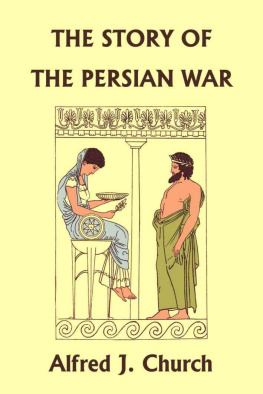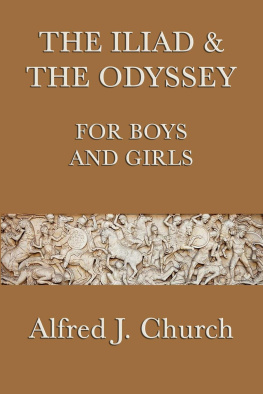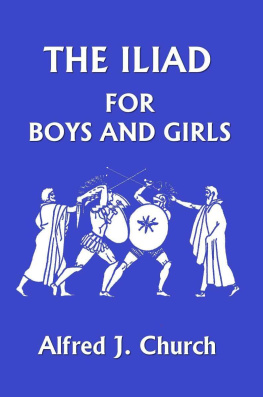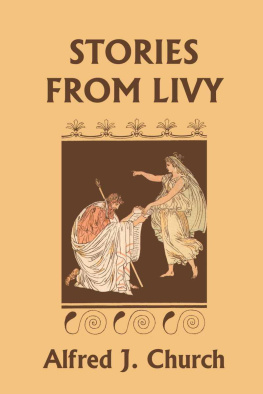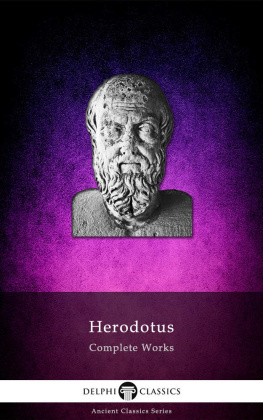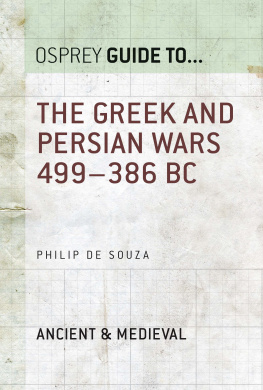The Story of the Persian War
by
Alfred J. Church
Yesterday's Classics
Chapel Hill, North Carolina
Cover and Arrangement 2010 Yesterday's Classics, LLC
All rights reserved. No part of this book may be reproduced or retransmitted in any form or by any means without the written permission of the publisher.
This edition, first published in 2010 by Yesterday's Classics, an imprint of Yesterday's Classics, LLC, is an unabridged republication of the work originally published by Dodd, Mead and Company in 1881. This title is available in a print edition (ISBN 978-1-59915-330-8).
Yesterday's Classics, LLC
PO Box 3418
Chapel Hill, NC 27515
Yesterday's Classics
Yesterday's Classics republishes classic books for children from the golden age of children's literature, the era from 1880 to 1920. Many of our titles are offered in high-quality paperback editions, with text cast in modern easy-to-read type for today's readers. The illustrations from the original volumes are included except in those few cases where the quality of the original images is too low to make their reproduction feasible. Unless specified otherwise, color illustrations in the original volumes are rendered in black and white in our print editions.
Preface
I found that "The Story of the Persian War," if it was to be fully told, would require all the space at my command. I have not, therefore, gone beyond this subject, and have given to this book the title which best describes its contents. There are yet "Stories of the West" to be found in Herodotus, which I may have, I hope, an opportunity of giving to the public.
The illustrations of this volume are taken from various sculptures and vases. The artist has sought to reproduce in them the coloring of a certain small class of Greek pottery, examples of which may be seen in the British Museum.
H ADLEY G REEN ,
Oct . 21, 1881.
Contents
CHAPTER I
Of the Revolt of Miletus
K ING D ARIUS gave Myrcinus that is on the river Strymon, in the land of Thrace, to Histius, lord of Miletus, for a reward; for Histius had done him good service in his warfare against the Scythians. But when the man began to build a wall about the place, one said to the King, "O King, what is this that thou hast done, giving this city in Thrace to a man that is a Greek, and wise moreover and crafty? For in that country is great store of timber for ship-building, and mines also of silver and there are many inhabitants, both Greeks and barbarians, who will take this fellow for a leader, and will do what he shall bid them, working day and night. Do thou therefore stay him in this work; but stay him with soft words. Bid him come to thee, and when he is come, take good care that he never go among the Greeks any more." This counsel seemed good to the King. Wherefore he sent a messenger to Histius, saying, "Thus saith the King, I am persuaded that there is no better man disposed to me and to my kingdom than thou. Come therefore to me, for I have great matters in hand and would fain ask thy counsel about them." So Histius, taking these words to be true, and counting it a great thing to be the King's counselor, came to Sardis to Darius. And when he was come, Darius said to him, "Hear now the cause wherefore I have sent for thee. Since the day that thou didst depart from me I have desired nothing so much as to see thee and talk with thee; for in my judgment there is nothing so precious as a friend that is both faithful and wise; and this I know thee to be. Leave now thy city of Miletus, and that also which thou art building in Thrace, and come with me to Susa, for all that I have is thine, and thou shalt live with me, and be my counselor."
After this the King went up to Susa, taking Histius with him. And he left Otanes to be captain of them that dwell by the sea. This Otanes was the son of a certain Sisamnes whom, being one of the royal judges, and having given unrighteous judgment for money, King Cambyses slew; and having slain him, he flayed off his skin, and cutting it into strips stretched them on the judgment-seat. And making the son of Sisamnes to be judge in his father's room, he bade him remember on what manner of seat he sat.
In these days Miletus was the most prosperous of all the cities of Ionia, though it had been brought very low in the second generation before by strife among its citizens. This strife was healed after this fashion by the Parians, whom the men of Miletus chose out of all the Greeks to be judges in their case. These Parians went through the land of Miletus, and wheresoever they saw in the country, which was for the most part desolate, any field well tilled, they wrote down the name of the master of the field. And when they had traversed the whole, and found not many such, so soon as they were come back to the city, they called an assembly, and made this award, that the men whose fields they had seen to be well tilled should bear rule, for they judged that such as managed well their own affairs would manage well the affairs of the State also. But now from this city of Miletus, and from the island of Naxos, which was the richest of all the islands, there came great damage to the men of Ionia. It happened on this wise. Certain of the rich men of Naxos, being banished by the commons, fled to Miletus, of which city one Aristagoras was lord in those days, being son-in-law to Histius. And when the exiles prayed him for help that they might come back to their own country, Aristagoras, thinking that if they should come back by his help, he should be lord of Naxos, said to them (and he had this pretext for helping them that they had been long time friends of his father-in-law), "I cannot bring you back to Naxos against the will of the city, for I hear that they have eight thousand men at arms, and many ships of war. But I have a friendship with Otanes, that is brother to King Darius, and captain of them that dwell by the sea, and has many soldiers and ships. I will work with him that he shall do what ye wish." To this the exiles agreed, saying that they would find pay for the army. Then went Aristagoras to Otanes and said to him, "There is a certain island of Naxos, not very great, but a good land and fair, and near to Ionia, and having in it much wealth and many slaves. If thou wilt make war upon this island, bringing back to it certain men that have been banished, thou shalt receive much wealth from me, over and above the cost of the war, for this it is just that we who desire it should pay; also thou wilt win for the King Naxos and the islands that are subject to it, and from thence thou wilt be able to make war on Euba, a great island and a rich, being not less than Cyprus, and easy to be subdued. For all this a hundred ships will be sufficient." To this Otanes made answer, "Truly thou bringest a matter that may advantage the house of the King, and thy counsel is good, save as to the number of the ships. There shall be ready not one hundred but two hundred in the spring season. Only the King must approve of the undertaking." And when he had sent to the King and had his assent, he made ready two hundred ships of war, putting on them a great multitude of Persians and allies, and setting Megabates, that was nephew to him and to the King, to command them. (It was the daughter of this Megabates that Pausanias the Spartan would have taken to wife, if indeed the story be true, when he sought to make himself lord of Greece.) Megabates took with him Aristagoras, and many soldiers from Miletus, and the exiles, and sailed towards the Hellespont. But when he came to Chios he cast anchor, waiting for a north wind that he might sail to Naxos. And herefor it was not to be that Naxos should perish at this timethere befell this thing.

